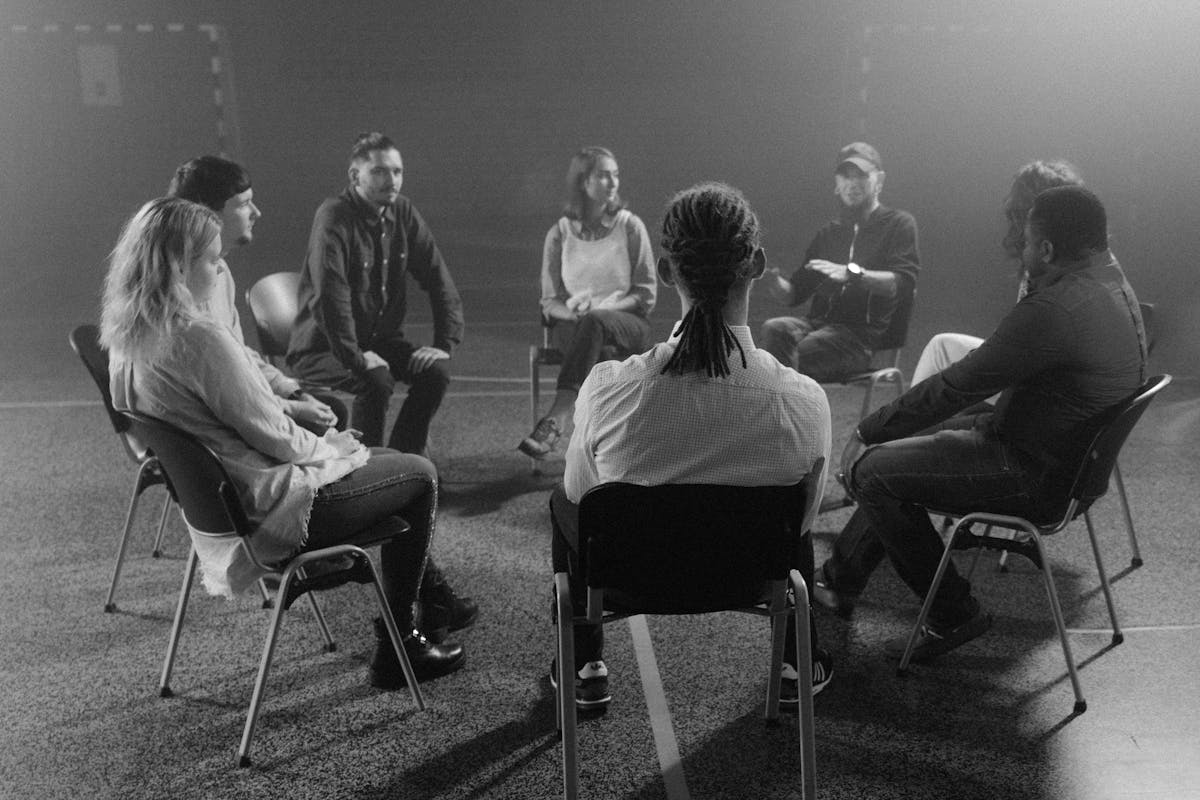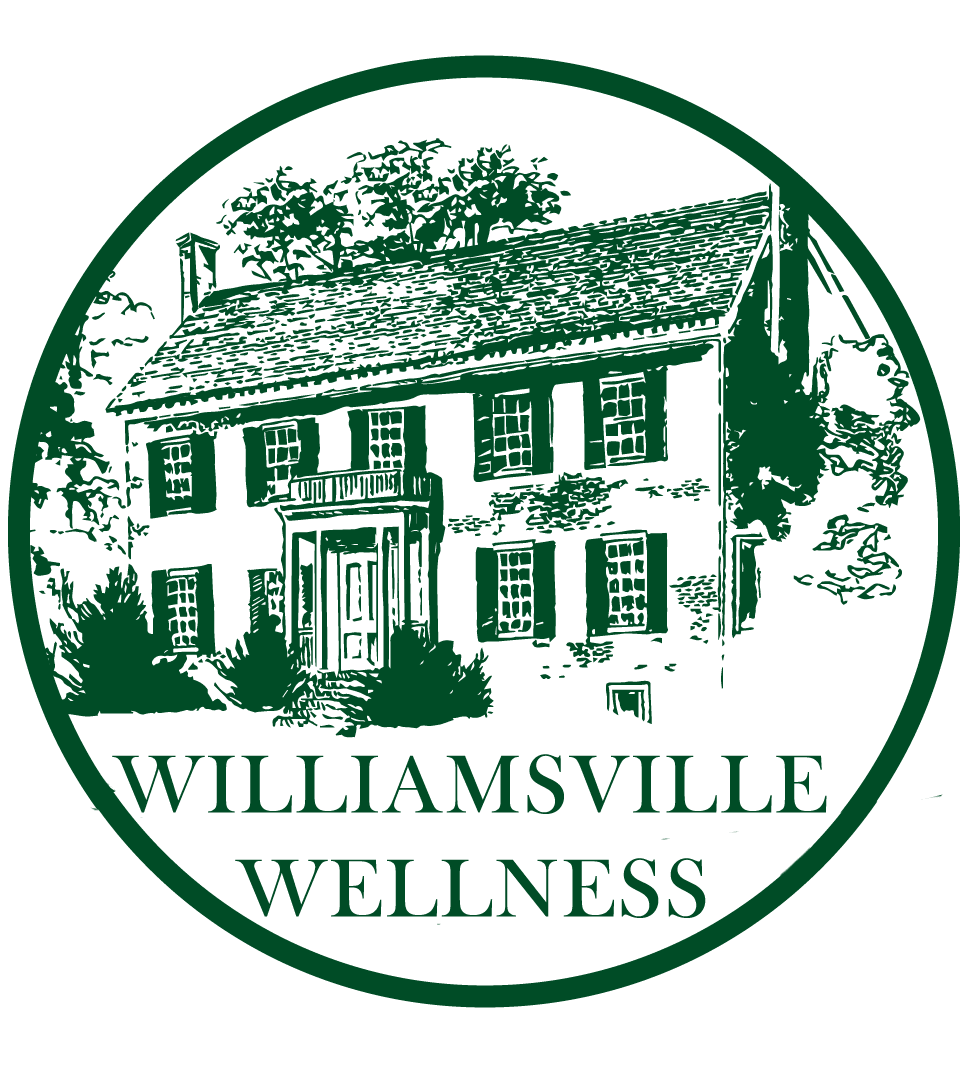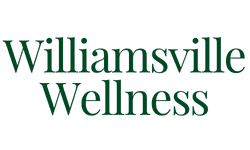Building a Sober Support Network: Beyond AA and NA
Discover diverse, evidence-based approaches to creating a personalized recovery community that supports your unique journey
📚 What You'll Discover in This Guide
- Understanding Your Support Network Needs
- Evidence-Based Alternatives to Traditional 12-Step Programs
- Professional Treatment as a Foundation
- Virtual and Online Recovery Communities
- Sober Social Activities and Recreation
- Individual and Group Therapy Options
- Family and Friends in Your Network
- Maintaining and Expanding Your Network
- Creating Your Personalized Support Plan
Recovery from addiction is rarely a solitary journey. While Alcoholics Anonymous and Narcotics Anonymous have helped millions achieve and maintain sobriety since their inception, they represent just one pathway among many effective approaches to building a sustainable recovery community. The landscape of addiction recovery has evolved dramatically, offering diverse, evidence-based alternatives that can complement or serve as standalone support systems for your recovery journey.
The concept of a sober support network extends far beyond traditional meeting rooms. Today's recovery landscape includes secular mutual aid groups, professional outpatient treatment programs, virtual communities, recovery-focused social activities, and specialized therapeutic approaches. Each option offers unique benefits, and research increasingly shows that the most effective recovery networks are those tailored to individual preferences, beliefs, and circumstances.
Understanding your options empowers you to construct a support system that genuinely resonates with your values and lifestyle. Whether you're seeking alternatives due to philosophical differences with 12-step principles, geographic limitations, scheduling challenges, or simply a desire for additional support modalities, numerous evidence-based pathways can strengthen your recovery foundation.

Support groups provide community and accountability in recovery
Understanding Your Support Network Needs
Before exploring specific alternatives, it's essential to assess what you need from a support network. Recovery support serves multiple functions: accountability, emotional encouragement, practical guidance, social connection, and skill development. Your ideal network may draw from various sources rather than relying on a single approach.
Research from the National Center for Biotechnology Information demonstrates that social support assists recovery by providing encouragement, discouraging previous habits, rewarding new behaviors, and emphasizing coping skills beyond substance use. Conversely, social isolation and low support correlate with increased psychological stress, more severe substance use, and higher relapse rates.
Consider what aspects of support matter most to you. Some individuals thrive in structured group settings with regular meetings, while others prefer less formal social connections. Some benefit from faith-based components, while others seek secular, science-based approaches. Understanding your preferences helps you build an effective recovery framework aligned with your authentic self.
💡 Key Insight
The most effective support networks are personalized, combining multiple resources that address your unique recovery needs, values, and lifestyle circumstances.
Evidence-Based Alternatives to Traditional 12-Step Programs
Several mutual support organizations offer alternatives to AA and NA, each with distinct philosophies and approaches. According to research published in the Journal of Substance Abuse Treatment, alternative mutual help groups like SMART Recovery, LifeRing, and Women for Sobriety demonstrate effectiveness comparable to 12-step groups when individuals remain actively engaged.
SMART Recovery
Self-Management and Recovery Training (SMART Recovery) represents a secular, science-based alternative emphasizing personal empowerment and evidence-based techniques. Rather than the spiritual foundation of 12-step programs, SMART Recovery draws from cognitive behavioral therapy and motivational interviewing principles.
The program focuses on four key points: building and maintaining motivation to change, coping with urges, managing thoughts, feelings, and behaviors, and living a balanced life. Meetings feature trained facilitators who guide discussions using structured exercises and homework activities. With both in-person meetings and 24/7 online forums, SMART Recovery offers flexibility for various schedules and preferences.
SMART Recovery welcomes individuals addressing any addictive behavior, from substances to gambling, making it particularly relevant for those seeking comprehensive gambling addiction treatment alongside substance recovery.
LifeRing Secular Recovery
LifeRing provides another secular alternative, operating on the principle that each person possesses both a "sober self" and an "addict self." The program aims to strengthen the sober self through peer support and self-empowerment, eschewing higher power concepts in favor of personal agency.
LifeRing meetings encourage conversational exchange called "cross-talk," where members actively share experiences and practical strategies. The focus remains primarily on the present and future rather than dwelling extensively on past behaviors. Members develop personalized sobriety plans using the Recovery by Choice workbook, emphasizing that each person finds their unique path to sustained sobriety.

Peer support creates connections that strengthen recovery commitment
Women for Sobriety
Women for Sobriety (WFS) specifically addresses women's unique needs in recovery, recognizing that women often face distinct challenges including trauma, relationship dynamics, and societal pressures. The program emphasizes emotional and spiritual growth, positive thinking, and self-empowerment through its "New Life" acceptance program.
WFS meetings provide a supportive environment where women can discuss issues specific to their experiences without judgment. The program's 13 acceptance statements focus on building self-esteem, releasing negativity, and creating positive life changes. Both in-person meetings and online communities offer connection opportunities for women seeking gender-specific support.
Research demonstrates that when controlling for recovery goals and active involvement, alternative mutual help groups show comparable effectiveness to 12-step programs, validating multiple pathways to sustained recovery.
Professional Treatment as a Foundation
While peer support groups offer invaluable community, professional addiction treatment provides specialized clinical expertise that forms a crucial foundation for many recovery journeys. Comprehensive residential treatment programs address both addiction and underlying factors that contribute to substance use.
Professional treatment offers several advantages beyond peer support alone. Licensed therapists provide evidence-based therapeutic interventions tailored to individual needs. Medical professionals can safely manage withdrawal symptoms and address co-occurring mental health conditions through integrated dual diagnosis treatment. Structured programming creates accountability while teaching essential coping skills.
Following residential treatment, many individuals transition to outpatient services that provide ongoing professional support while allowing return to daily responsibilities. Partial hospitalization programs (PHP) and intensive outpatient programs (IOP) offer varying levels of structure, creating a continuum of care that adapts to changing needs throughout recovery.
The experienced treatment team at specialized facilities brings together diverse expertise, including addiction counselors, mental health therapists, and medical professionals. This multidisciplinary approach ensures comprehensive care addressing physical, psychological, and social aspects of recovery.
Virtual and Online Recovery Communities
Technology has revolutionized access to recovery support, breaking down geographic barriers and offering unprecedented flexibility. Virtual recovery communities provide 24/7 connection opportunities, particularly valuable for individuals in rural areas, those with mobility limitations, or people with scheduling constraints that make in-person meetings challenging.
Online platforms offer various formats: live video meetings replicating in-person group experiences, asynchronous forums where members post and respond at their convenience, one-on-one peer support through messaging, and educational resources including videos, articles, and skill-building exercises.
Organizations like The Phoenix have pioneered digital platforms connecting members to recovery resources, including online marketplaces linking individuals to various support services. According to research published in Scientific Reports, sober active communities that harness social connection demonstrate significant effectiveness in supporting recovery.

Virtual support groups offer flexible access to recovery communities
Many traditional recovery organizations now offer robust online presences. SMART Recovery provides daily online meetings and 24/7 message boards. LifeRing offers email peer support (ePals) and online meetings. Even 12-step programs have expanded virtual options, with thousands of online meetings available worldwide.
The key to successful virtual engagement mirrors in-person participation: active involvement, regular attendance, and willingness to both give and receive support. While virtual communities may not replace face-to-face connection entirely for everyone, they serve as valuable supplements or standalone options depending on individual circumstances.
Sober Social Activities and Recreation
One of recovery's greatest challenges involves rebuilding social life around activities that don't involve substances. Sober social connections provide enjoyment, stress relief, and relationship building—all crucial for sustained recovery—while reinforcing commitment to sobriety through positive peer influence.
Recovery-focused recreational groups create opportunities for meaningful connection through shared interests. Organizations like The Phoenix build communities around fitness and outdoor activities, recognizing that exercise and nature exposure support both physical and mental health in recovery. Their volunteer-led programming includes CrossFit, yoga, hiking, and numerous other activities designed to foster sober connections.
Identify Your Interests
Consider activities you enjoyed before addiction or new pursuits you've wanted to explore, creating opportunities for authentic connection
Seek Sober-Focused Groups
Look for explicitly recovery-oriented organizations or substance-free activity groups in your community or online
Start Small and Build
Begin with one or two regular activities, gradually expanding as you build confidence and connections
Volunteer and Give Back
Participating in community service or recovery advocacy creates purpose while connecting with like-minded individuals

Outdoor activities with sober friends support physical and emotional wellness
Collegiate recovery programs offer students structured support within educational environments, combining academic success with recovery maintenance. Recovery community centers provide social hubs offering various activities, workshops, and gatherings specifically for those in recovery. These centers often include fitness facilities, art studios, coffee shops, and event spaces—all substance-free.
Don't overlook general community activities with sober-friendly environments. Book clubs, hiking groups, art classes, volunteer organizations, and sports leagues often welcome individuals seeking substance-free socialization. The key lies in surrounding yourself with people who support your recovery, whether or not they're in recovery themselves.
Individual and Group Therapy Options
Professional therapy provides specialized support addressing the psychological aspects of addiction and recovery. Unlike peer support focused primarily on shared experience, therapy offers clinical expertise in treating underlying mental health conditions, trauma, and behavioral patterns that contribute to substance use.
Individual therapy creates a confidential space to explore personal challenges with a trained professional. Evidence-based approaches particularly effective for addiction recovery include cognitive behavioral therapy (CBT), which addresses thought patterns driving addictive behaviors; dialectical behavior therapy (DBT), especially valuable for emotional regulation and managing urges; and trauma-focused therapies like EMDR for individuals whose substance use stems from traumatic experiences.
Many individuals benefit from specialized alcohol addiction treatment or drug addiction treatment that combines individual sessions with targeted group therapy addressing specific substances or behaviors.
Group therapy led by licensed professionals offers advantages distinct from peer support groups. Therapist-facilitated groups provide structured skill-building, process interpersonal dynamics therapeutically, address specific issues like anxiety or trauma alongside addiction, and offer professional guidance in applying recovery concepts.
🎯 Treatment Approach
Combining professional therapy with peer support creates a comprehensive network addressing both clinical and social aspects of recovery, significantly strengthening outcomes.
Many addiction treatment centers offer continuing care groups for alumni, providing ongoing therapeutic support beyond initial treatment. These groups maintain connection with treatment professionals while building long-term recovery communities among people who shared initial treatment experiences.
Family and Friends in Your Network
While recovery often requires distance from certain relationships that enabled or encouraged substance use, rebuilding healthy connections with supportive family and friends forms a crucial component of sustainable recovery. Family dynamics significantly influence both addiction development and recovery success.
Family members who educate themselves about addiction and recovery can become powerful allies. Organizations like Al-Anon and Nar-Anon help loved ones understand addiction as a disease, set healthy boundaries, and support recovery without enabling. Family therapy sessions facilitate communication, address relationship wounds, and establish new patterns supporting long-term sobriety.

Supportive friendships provide encouragement throughout recovery
Sober friendships, whether with people in recovery or those who simply support your sobriety, create accountability and positive social opportunities. These relationships might develop through recovery activities, work, hobbies, or other community connections. The key characteristic is mutual respect for your recovery commitment.
Building a sober social network often requires vulnerability and courage. It means being honest about your recovery, setting clear boundaries around substance-free activities, and sometimes walking away from relationships that threaten your sobriety. However, the authentic connections formed in recovery—built on honesty rather than substances—often prove deeper and more meaningful than relationships from active addiction.
Remember that friendship serves as a powerful motivator in recovery, providing encouragement during challenges and celebration during victories. Nurturing these relationships through regular communication, shared activities, and mutual support strengthens your entire recovery network.
Maintaining and Expanding Your Network
Building a support network is just the beginning; maintaining and strengthening these connections requires ongoing effort and intention. Active participation distinguishes those who benefit most from support systems. Whether attending meetings, engaging in online forums, or meeting friends for coffee, consistency matters more than intensity.
Research consistently shows that the strongest predictor of success in recovery support groups—regardless of type—is active involvement. This includes having a regular meeting or group, maintaining close connections with specific members or a sponsor/mentor, participating in group activities beyond formal meetings, and taking on roles or responsibilities within the community.
Support networks function best when reciprocal. As you receive encouragement and guidance, offering your support to others strengthens both their recovery and yours, creating a mutually beneficial community.
As recovery progresses, your network needs may evolve. Early recovery often requires intensive support, while established sobriety might shift toward maintenance-level connection and focus on other life goals. Periodically assess whether your current network meets your needs, remaining open to adding resources or adjusting involvement levels as circumstances change.

Regular self-reflection helps maintain and strengthen recovery commitments
Don't hesitate to supplement your network with additional resources as needed. Challenging periods might warrant temporary increases in therapy frequency, additional group meetings, or reaching out for extra support. Recognizing when you need more help and accessing available resources demonstrates recovery wisdom, not weakness.
Creating Your Personalized Support Plan
The most effective recovery networks combine multiple elements tailored to individual needs, preferences, and circumstances. Rather than searching for the "perfect" single solution, consider how various resources can work together supporting your recovery journey.
Your personalized plan might include professional treatment as a foundation, regular participation in one or more mutual support groups (whether 12-step or alternatives), individual therapy addressing specific mental health needs, sober social activities aligned with your interests, online communities providing flexible connection, and supportive relationships with family and friends who understand recovery.
Consider practical factors when building your network. Geographic location determines which in-person options are available, though online resources expand possibilities. Schedule constraints might make virtual support more accessible than face-to-face meetings. Financial considerations influence whether you can access professional treatment, though many resources like mutual support groups are free, and insurance often covers professional treatment.
✨ Personalization Matters
There's no single "right" way to build a support network. The best approach is one that resonates with your values, fits your lifestyle, and genuinely supports your recovery journey.
Start by choosing one or two primary support resources that feel most comfortable, gradually adding others as you gain confidence in recovery. Some people begin with professional treatment and add peer support during or after. Others start with mutual support groups and later incorporate therapy. The sequence matters less than finding what works for you.
Remember that seeking help is a sign of strength, not weakness. Whether you're just beginning your recovery journey or looking to strengthen existing sobriety, expanding your support network enhances your chances of long-term success. Professional addiction treatment centers like Williamsville Wellness provide comprehensive assessment and guidance in developing personalized recovery plans that incorporate appropriate support resources.
Moving Forward with Confidence
Building a sober support network beyond traditional 12-step programs offers hope and practical pathways for anyone seeking recovery alternatives or supplements. The expanding landscape of evidence-based options ensures that regardless of your beliefs, preferences, or circumstances, effective support exists to strengthen your recovery journey.
Whether you choose secular mutual aid groups like SMART Recovery or LifeRing, professional treatment combining therapy and medical support, virtual communities offering 24/7 connection, sober recreational activities fostering positive relationships, or a personalized combination of multiple resources, the key lies in active engagement and consistency.
Your recovery is unique, and your support network should reflect that individuality. By exploring various options, remaining open to different approaches, and building connections that genuinely resonate with your authentic self, you create a foundation for sustained recovery and meaningful life transformation.
Recovery support extends far beyond meeting rooms, offering diverse pathways to the connection, accountability, and growth essential for lasting sobriety. The journey may not always be easy, but with a strong, personalized support network, you're never walking it alone. Explore the recovery stories of others who have successfully built diverse support networks to inspire your own journey.
Ready to Build Your Recovery Support Network?
Professional guidance can help you identify the most effective support resources for your unique situation. At Williamsville Wellness, our experienced addiction treatment team provides comprehensive assessment and personalized treatment planning that incorporates appropriate support networks for lasting recovery success. We understand that recovery is not one-size-fits-all, and we're committed to helping you find the approaches that work best for you.
Take the first step toward building a strong, personalized support network today.
📞 Call 804-655-0094Speak with a compassionate addiction specialist about how our treatment programs can help you establish a comprehensive support network tailored to your recovery journey.

